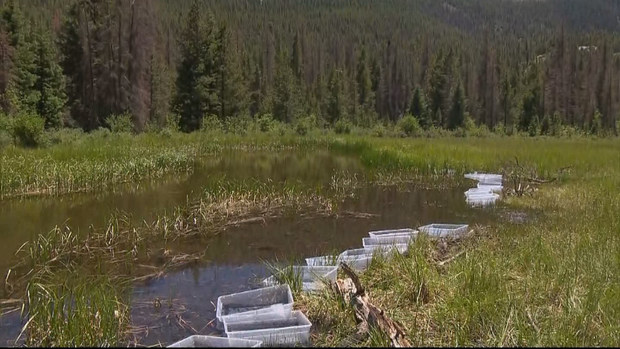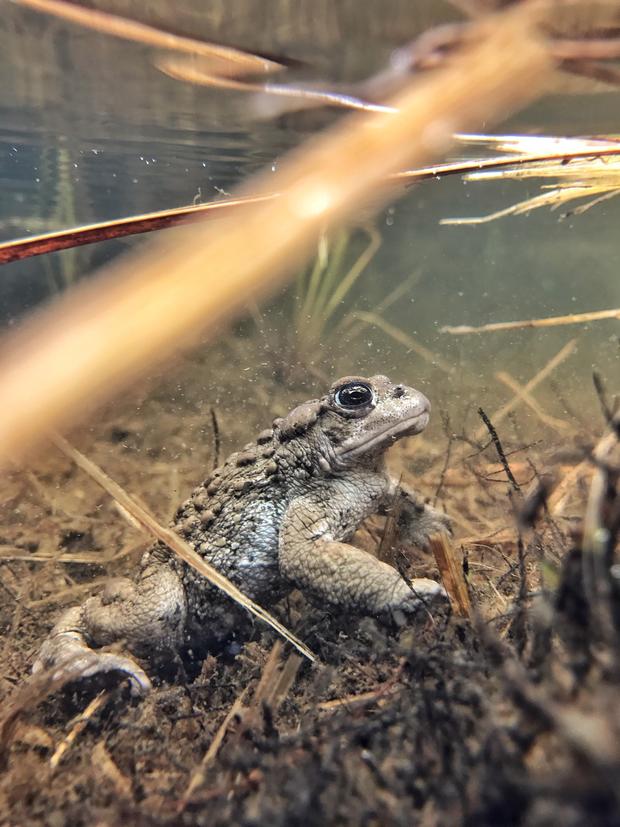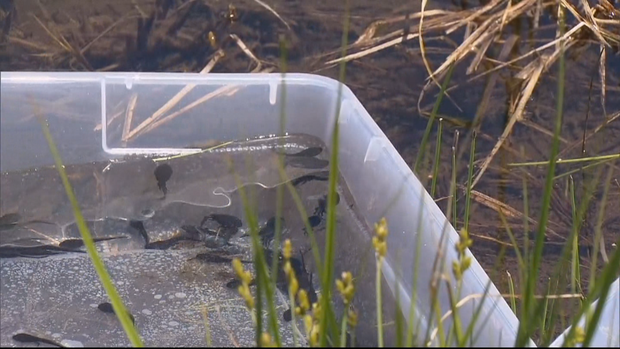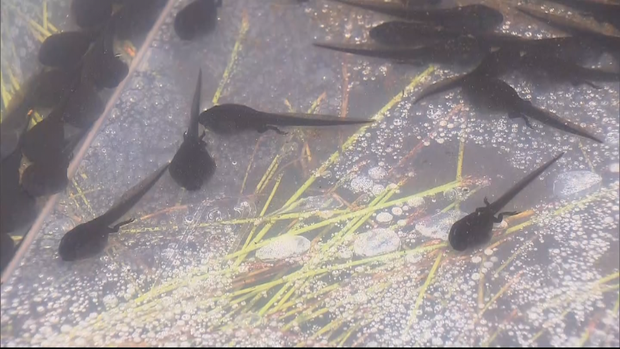Wildlife Experts Team Up With CU Boulder To Try & Save Boreal Toads
BUENA VISTA, Colo. (CBS4) - Efforts are underway in Colorado's High Country to bring back the native Boreal toads. Teamwork between Colorado Parks and Wildlife and the McKenzie Lab at the University of Colorado-Boulder are making this all possible.
Researchers are bathing the endangered toads in the treatment, dubbed "Purple Rain" due to its color, to protect them from the skin fungus that is killing amphibians. Lab tests prove promising, but this is the first in the field experiment
CPW's Paul Foutz, native aquatic species biologist based in the Southeast Region in Colorado Springs, led a team of biologists who made trips up the South Cottonwood Creek west of Buena Vista to assist PhD student Tim Korpita, and Dr. Valerie McKenzie and their research team from CU-Boulder in treating the toads.
"We are proud to be partners in this wildlife conservation fieldwork," Foutz said. "It's critical we find a cure to this deadly skin fungus that is killing our amphibians."
This is the third year of a CPW-funded research project to investigate the use of bacterial treatments, a project Foutz describes as "a potential game-changer for Colorado's endangered Boreal Toad, not to mention having the potential to impact amphibian populations worldwide."
It's a critical time in the project. In their laboratory, Korpita and McKenzie increased toad survival by 40% after bathing the toads in the native fungus-fighting bacterial wash called a probiotic treatment. CPW's work on South Cottonwood Creek was the first attempt to see if the lab results can be reproduced in wild populations.
Since wild amphibians can't easily be given vaccines or antifungal drugs, Korpita and McKenzie turned to the probiotic wash as a solution.
Scientists hope the fungus-fighting bacteria will be absorbed into the amphibian skin and protect the toads. They use bacteria that are native to the local biological community and naturally found on toads, and increase the abundance of these protective bacteria during a vulnerable life stage of the toads.
Korpita is now reporting that the preliminary results from the last summer "look very promising."
"We are finding that the probiotic is successfully persisting on the toads for longer than expected," Korpita said. "We are also learning that the specific life stage in which the toads are treated matters a great deal."
The team will re-survey their sites and recapture toads from last year's experiment to check up on them. Korpita hopes to find lots of surviving yearling toads this summer to lend more swab samples to the team. The CPW and CU-Boulder team also plans to treat captive toads that are slated for 2019 reintroductions into historic habitats in an effort to establish new populations.
"We are very excited to be doing this research, and we are extremely grateful to CPW for their support and collaboration. CPW truly is a forward-thinking group of wildlife biologists," McKenzie said.
Boreal toads are listed by Colorado Parks and Wildlife as an endangered species.







